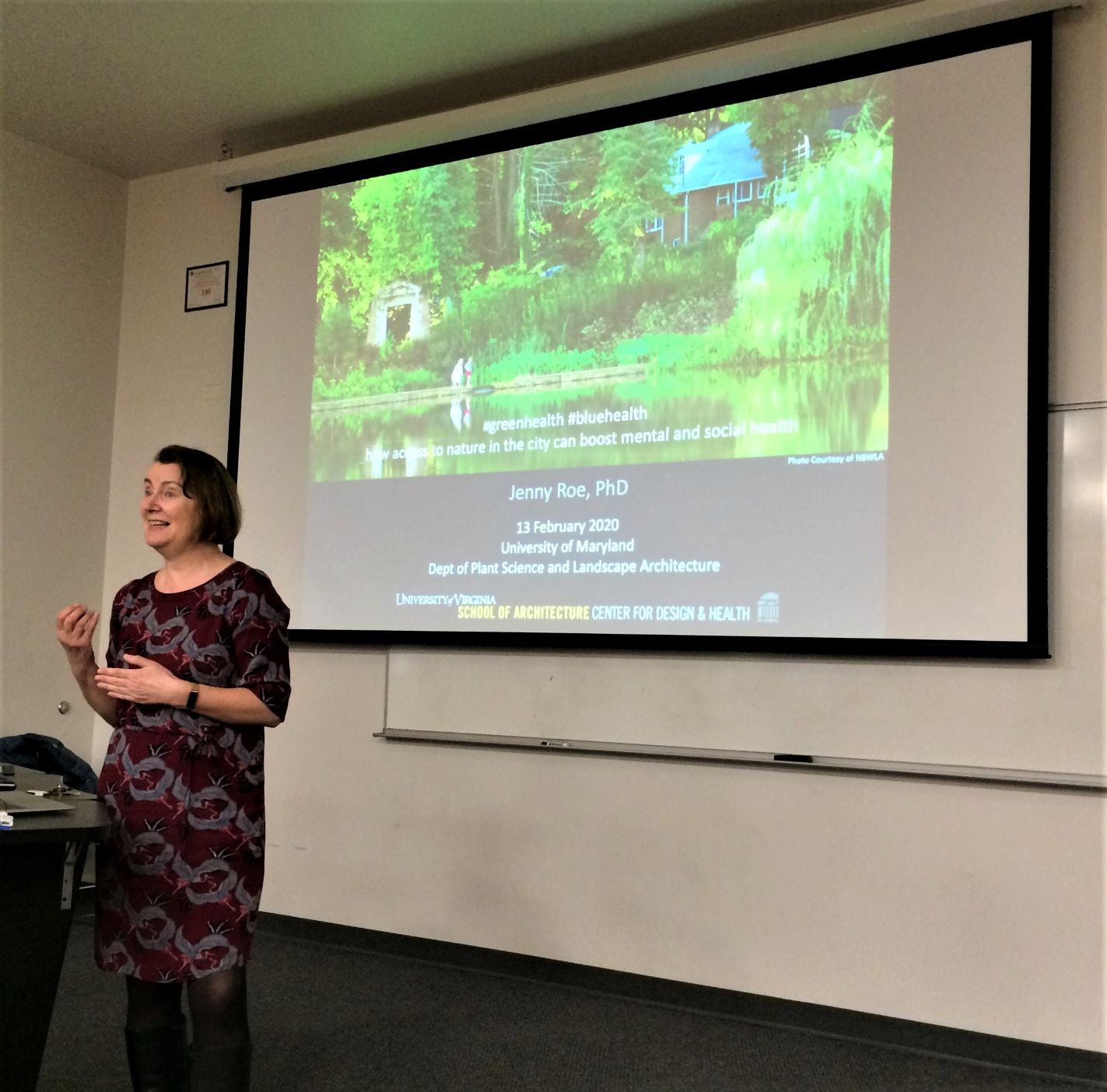Dr. Jenny Roe: How Access to Nature in the City Can Boost Mental and Social Health
On February 13, professor from the University of Virginia Dr. Jenny Roe gave a lecture to the landscape architecture department on the effects of greenspace on a person’s psychology. As an applied environmental psychologist, Roe studies low-income communities in the UK and the effect that nature has on their mental well-being.

Roe’s works on documenting evidence showing that the environment has a strong beneficial effect on our mental health. In her various studies, Roe found that there was a strong correlation between decreased mental health problems and exposure to the environment.
While this conclusion comes as no surprise in the landscape architecture realm, both students and faculty appreciated Roe’s use of quantitative data in her study, which is key to justifying the designs of all landscape architects. “I think that by looking at specific mechanisms... from [both] qualitative self-reports and physiological measures, such as heart rate, salivary cortisol levels, and blood pressure that it creates a stronger case for nature being restorative and beneficial,” assistant professor Dr. Naomi Sachs said.
With this data, some students were curious about further in-depth studies that could be conducted. “Her sample sizes were really small, so I’d be interested to see what she found on how [people’s psychology] changes or remains the same with a larger group of people and also people of different ages and ethnic backgrounds,” second-year graduate student Chris Samoray said.
Others were interested in more specifics about what exactly in nature led to people’s change in mental health. “Is it seeing a tree? Is it physically putting yourself outside? Is it hearing water and feeling the wind on your face? What is it actually about being outside that is stress-reducing? Does it matter if you’re looking at [your phone while being outside]?” second-year graduate student Emma Podietz said.
Students and faculty both agreed that her research provides an empirical foundation for landscape architects’ work to be taken seriously. “It is really important to be able to point to empirical, scientific data because, otherwise, we can’t claim that something works,” Podietz said.
Roe’s research ultimately left students intrigued, but the resounding message was well-stated by Sachs. “I think her overall message is that the environment matters. Physical space matters. And, we can use research to better understand [our interaction with the environment] and make better design decisions,” she said.